I am a 'Chopped' champion. Here are 10 things even superfans don't know about the show.
I'm a Food Network "Chopped" champion, and I was surprised by a few things when I was on the show.
Judging for the appetizer round can take two hours, and there's a legend of a cursed bowl on set.
Though we were up against the clock, I figured out a trick to buy more time before each round.
Arguably one of the most successful cooking-competition shows of all time, Food Network's "Chopped" is a television phenomenon — which is why I'm still surprised I won.
The episode I competed on ("Chocolate Obsession," episode six of season 32) is a particularly dramatic 40-something minutes of entertainment.
Here are 10 things that surprised me about the "Chopped" competition that even die-hard fans don't know.
At no point during casting does anyone ask you to cook
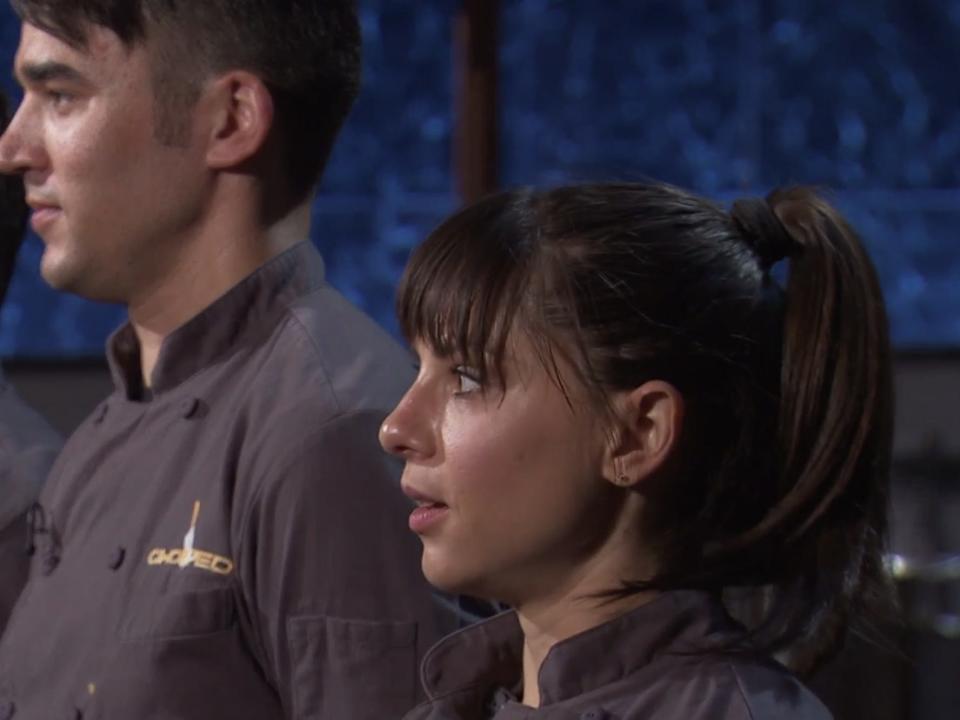
Casting for "Chopped" consists of three parts: an online application, an on-camera interview, and, if you're chosen, a day of get-to-know-you filming that's used for the introductions at the start of each episode.
At no point during this process does anyone taste your food or watch you cook, a quirk I found baffling given "Chopped" is a competition for chefs.
5 chefs show up for filming, but only 4 compete
While only four chefs compete on the show, five arrive on set. The fifth chef is an alternate in case someone backs out at the last minute.
Given that the call time is about 5 a.m., I imagine it's a bit of a bummer to get yourself to the studio before dawn, only to be told to go home.
But we were told that alternates usually ended up on the show at a later date, which is some sort of consolation.
The chefs' stations are numbered, and each has its own advantages and disadvantages
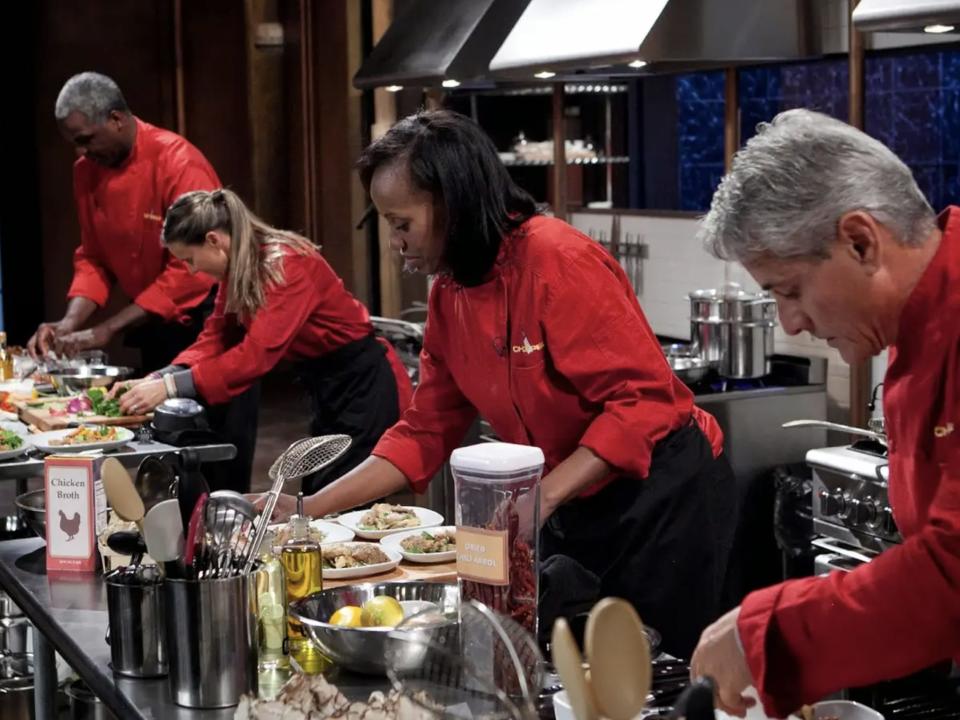
At the start of filming, each chef is assigned a number, one through four.
These numbers help the crew keep organized throughout the day and are tied to the chefs' cooking stations, with one being to the right of your television screen and four to the left. While the chefs are assigned numbers at random, there are advantages and disadvantages to each station.
Station one, where I was assigned, is the closest to the pantry, so you can easily ping-pong from your area to the refrigerator, spices, dry goods, and equipment.
This is especially advantageous because the "Chopped" set is gigantic, and running back and forth eats up valuable time. The seconds saved from not having to dodge other contestants on the way to the pantry can make or break a round.
Station four, on the other hand, is farthest from the pantry but closest to the judges. Therefore, chef No. 4 needs to plan because too many trips to the pantry mean you spend more time running around than you do cooking.
But station four has the advantage of being within earshot of the judges, who often discuss clues about how to handle mystery ingredients. For particularly tricky basket items, being able to hear these tips can be game-changing.
The 'Chopped' clock is real — but there is hidden time before it starts
There's no fudging time on "Chopped" because, just like the show claims, contestants get 20 minutes to prepare and plate the appetizer and 30 minutes for the entrée and dessert.
But just before the countdown clock starts, there are a few precious minutes that can be used to the chefs' advantage.
After opening the basket, the chefs are filmed taking out each ingredient and placing it in front of them. Because the clock doesn't start until the crew gets its shot, this gives the chefs a few moments to come up with a plan.
I learned after round one that the faster I put the mystery items in front of the basket, the less time I had to think. By round two, I took the items out of the basket with leisure, making sure to thoroughly examine each ingredient for as long as I could get away with to buy myself time.
This savvy trick may have garnered me only a minute or so of strategizing, but it was enough time to formulate a plan and get to work as soon as the clock started.
There's apparently a cursed bowl on set
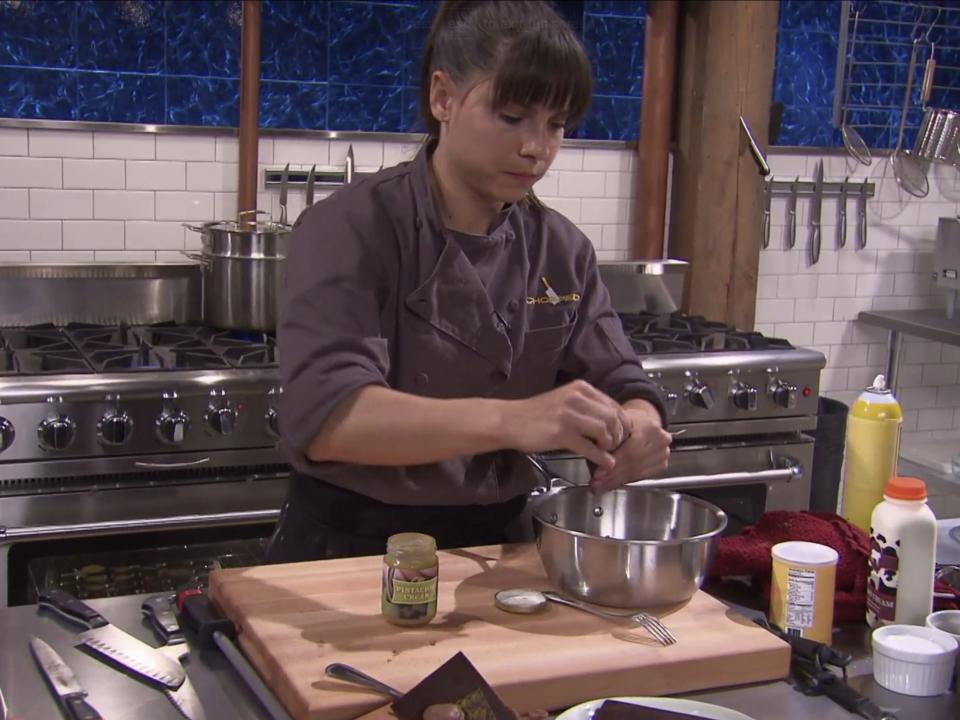
Though a day of filming lasts about 15 hours, recording the actual competition takes only about one hour and 20 minutes. Thus, there's a ton of downtime to shoot the breeze with producers and learn more about the show, like how there's a cursed bowl on set.
As legend has it, there's one bowl in the "Chopped" kitchen that spells doom for the chef who uses it.
The producers wouldn't tell me which bowl it was, only that I didn't use it and that whenever a poor chef does, they always get chopped.
Though the judges and host Ted Allen get hair and makeup, contestants don't
The lights are bright, and the kitchen is hot, but chefs are left to fend for themselves when it comes to hair and makeup.
The men didn't seem to mind, but I would have welcomed a professional touch-up here and there after sweating off my early-morning face.
Each dish is discussed for about 30 minutes
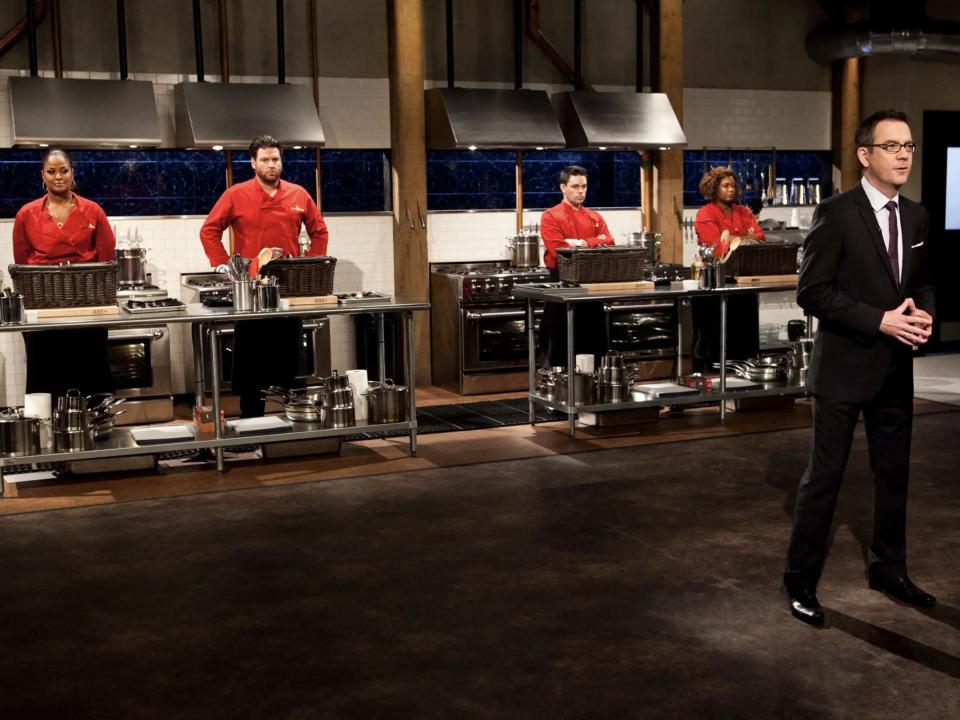
While judging for each round is edited down to mere seconds, in reality, this process is long. Each dish is discussed for about half an hour, which means judging for the appetizer round can take two hours.
The judges get ample time to talk about each dish and ask questions about the chefs' creations. As a chef, it's extremely frustrating to see the judges play to the cameras — this is entertainment first and cooking second.
Instead of talking about your dish like two colleagues learning from one another, you end up spending most of the time standing in front of the judges getting scolded for choices you would never make in the real world.
This is the nature of the show, but I wish there was a little more acknowledgment of the absurdity of the situation, given that chefs are putting their reputation on the line.
You don't get to taste other contestants' dishes — or your own, for that matter
Once the clock hits zero and the camera crew gets its shot, the chefs are immediately whisked off the set, so there's never an opportunity to try your fellow contestants' dishes.
Because completing each round comes down to the last second, it's also likely you won't get to taste your own dishes in their entirety, which makes judging all the more mysterious.
All the interviews are done after the competition ends
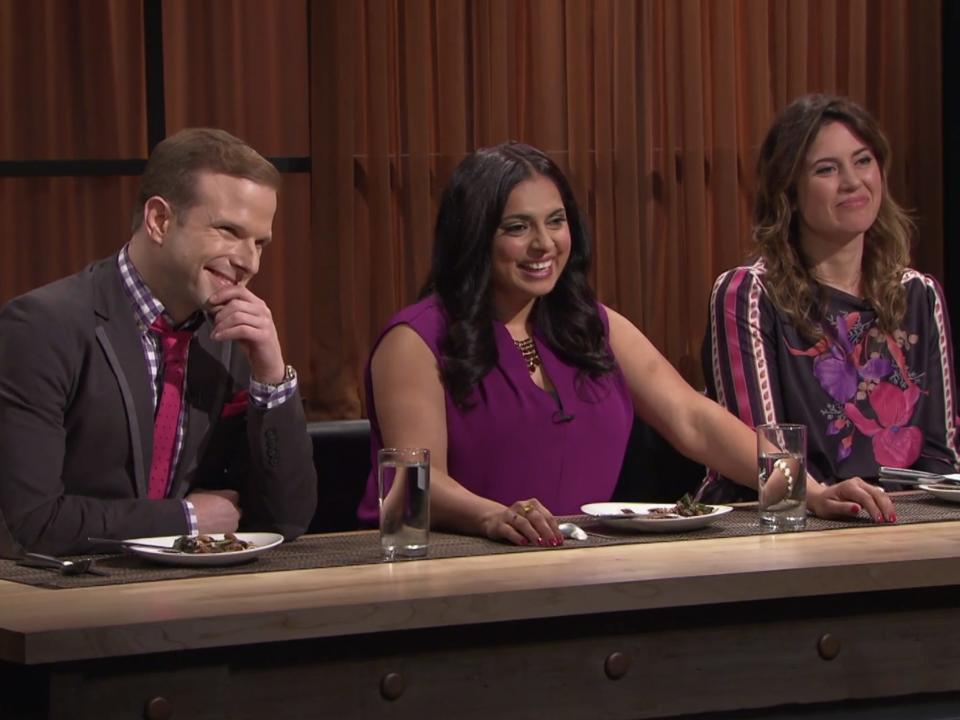
Whether you get chopped after the appetizer round or win the whole thing, all the "talking-head" interviews on "Chopped" are filmed after your competition is over.
The further you make it in the competition, the longer your exit interview because you have to go back over each round and talk about it like it's happening in real time.
For me, the challenge was trying to wipe the smile from winning off my face when talking about how I was sure I was getting chopped after round one.
I imagine the runner-up had the opposite challenge. After having just lost $10,000, he had to go back over his day and give airs of hope despite a disappointing outcome.
The winner doesn't get to keep the chef's jacket
And I'm still salty about it.
This story was originally published on March 21, 2022, and most recently updated on March 28, 2024.
Read the original article on Business Insider


